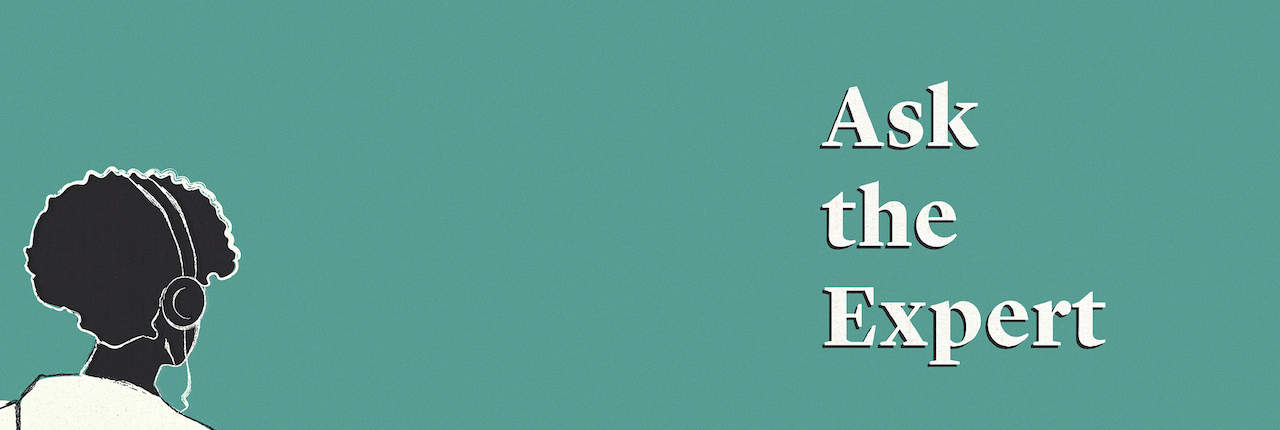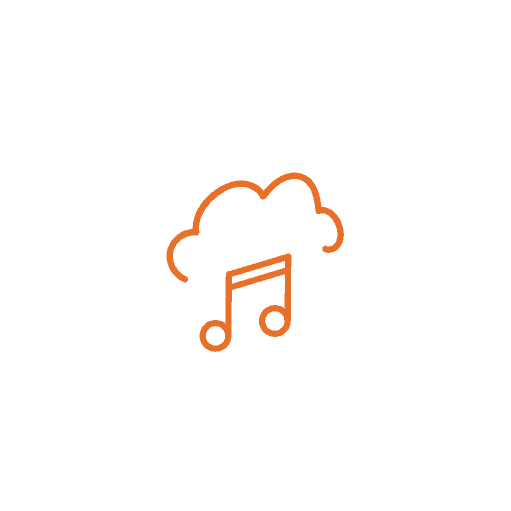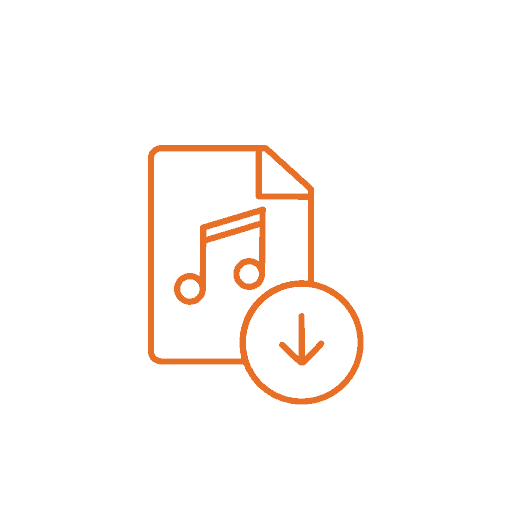Can Do MS: Take Charge and Coaching Series
October 13, 2023
Krissy Dilger of SRNA was joined by Kathy Costello of Can Do MS for an “Ask the Expert” podcast on “Can Do MS: TAKE CHARGE® and Coaching Series.” Kathy began by explaining the history and mission of the organization Can Do MS. She then discussed why Can Do MS partnered with SRNA to bring some of its programs to the rare neuroimmune community. Finally, Kathy described the goals and logistics of the TAKE CHARGE® program and the Coaching Series.
Transcript
[00:00:00] Krissy Dilger: Hello, and welcome to the SRNA “Ask the Expert” podcast series. This podcast is titled, “Can Do MS: TAKE CHARGE® and Coaching Series.” My name is Krissy Dilger, and I moderated this podcast. SRNA is a nonprofit focused on support, education, and research of rare neuroimmune disorders. You can learn more about us on our website at wearesrna.org.
[00:00:27] Krissy Dilger: Our 2023 Ask the Expert podcast series is sponsored in part by Horizon Therapeutics, Alexion, AstraZeneca Rare Disease, and UCB. Horizon is focused on the discovery, development, and commercialization of medicines that address critical needs for people impacted by rare, autoimmune, and severe inflammatory diseases. They apply scientific expertise and courage to bring clinically meaningful therapies to patients. Horizon believes science and compassion must work together to transform lives.
[00:01:01] Krissy Dilger: Alexion, AstraZeneca Rare Disease is a global biopharmaceutical company focused on serving patients with severe and rare disorders through the innovation, development, and commercialization of life-transforming therapeutic products. Their goal is to deliver medical breakthroughs where none currently exist, and they are committed to ensuring that patient perspective and community engagement is always at the forefront of their work.
[00:01:26] Krissy Dilger: UCB innovates and delivers solutions that make real improvements for people living with severe diseases. They partner with and listen to patients, caregivers, and stakeholders across the healthcare system to identify promising innovations that create valuable health solutions.
[00:01:44] Krissy Dilger: For today’s podcast, we were pleased to be joined by Kathy Costello. Kathleen Costello is the Chief Operating Officer for Can Do Multiple Sclerosis, where she leads teams focused on programs, marketing, and development so that Can Do can deliver health and wellness education for families living with MS. She is also adjunct faculty in the Department of Neurology at Johns Hopkins University School of Medicine in Baltimore, Maryland.
[00:02:13] Krissy Dilger: Ms. Costello has written and lectured extensively on MS and MS care. Ms. Costello previously participated in efforts for professional workforce expansion and education for the National MS Society. She was a Nurse Practitioner at the University of Maryland MS Center and the Johns Hopkins MS Center. She is a past president of the International Organization of MS Nurses and previously chaired the MS Specialist Certification Committee for the Consortium of MS Centers. She has worked with the Multiple Sclerosis International Federation on their successful efforts to add MS medications to the World Health Organization essential medicines list.
[00:02:56] Krissy Dilger: Ms. Costello earned both her Bachelor of Science and Master of Science degrees at the University of Maryland. She’s a Board-Certified Adult Nurse Practitioner and is also certified as an MS Nurse. She specialized in MS care for more than 25 years in academic comprehensive care centers as a nurse and as a nurse practitioner.
[00:03:17] Krissy Dilger: Welcome and thank you for joining me today, Kathy. To start us off, can you just tell us about what Can Do MS is and what the mission of your organization is?
[00:03:31] Kathy Costello: Thanks so much. Thanks so much for having me, and I’m more than happy to talk about Can Do MS. So, Can Do MS actually started as a nonprofit organization 40 years ago, just about 40 years ago. And our founder was a former Olympic skier and actually a medalist by the name of Jimmy Heuga. And some years after he medaled in the 1964 Olympics, he was unfortunately diagnosed with MS. And the conventional wisdom of the day said, ‘don’t go out in the heat, don’t get overstressed, don’t exercise.’ It was don’t, don’t, don’t.
[00:04:05] Kathy Costello: And he was an elite athlete that simply couldn’t live like that. And so, he really started to rethink his own activities, his own personal motivation, his diet, and he started to incorporate a lot, a lot more health and wellness into his own life. And he found that he felt better. He had more energy, he had better mobility, his, certainly his mental health improved, and he wanted to share that with the world.
[00:04:32] Kathy Costello: And not only people, other people living with MS, but healthcare professionals, so they would understand the value of lifestyle and what you can do yourself, and how you can identify, even in the face of a chronic illness, how you can identify things that you can do that bring you joy, that improve your quality of life, but also improve your function. And so, he set this out in the Jimmy Heuga center, which ran once, it was a one-week program that he held in the mountains of Colorado, where people would come and spend a week learning what they could do, how to do it, and then they would go home feeling like a brand new person.
[00:05:14] Kathy Costello: And if their support partner or care partner came along with them, they felt like they had a new life. And people who have participated in those programs years ago still speak about them today. Those programs are a little tough to have as they’re quite costly. But what we’ve tried to do over the years is take the elements of those, of that program, and Jimmy’s philosophy of identifying what you can do, and incorporating that into a myriad of programs that we have that go from webinars and podcasts to a 4 week coaching series, which we’ll talk about in a little bit, one and a half day programs, and post-pandemic reentering into that community program world and having actual in-person programming. Both for people with MS, but also attending to the needs of care partners, because we believe when the family is healthy, everybody does much better.
[00:06:16] Krissy Dilger: Great. Thank you so much. That was a wonderful explanation and such a great organization and all the work that you do. So, can you just explain why Can Do MS is partnering with the Siegel Rare Neuroimmune Association? Like, what led to this, this partnership?
[00:06:36] Kathy Costello: So, a few things. First of all, the programs that we have center around health and wellness. Now we talk about symptoms of MS for sure. And we talk about issues that are relevant to a population of people who are living with that diagnosis. But we also find a lot of what we talk about is what you can do. So, what kinds of things in terms of your exercise, your physical activity, your mental health, your communication, your relationships, finances, how do you talk to your healthcare provider? Those topics are not specific to MS, nor any of the conditions that SRNA supports.
[00:07:18] Kathy Costello: Really, it applies to everyone, whether you’re living with a chronic condition or you’re not. And, and when I started at Can Do, I came from a comprehensive center for MS, but also it was around immunological conditions. So, I was a nurse practitioner at Johns Hopkins, where we saw people who were living with any one of a number of conditions. And it made me think, as I came to Can Do, that what we do here, we’re not saving it for people with MS. This is, this is programming an opportunity that really applied to everyone.
[00:07:57] Kathy Costello: And it was, it became a mission of mine to share that and develop, to develop a partnership with another organization where we could help others as well as those living with MS. And so, I think that reaching out to SRNA was easy for me. First of all, I’ve known Chitra Krishnan for years because of our work at Hopkins, and so it was delightful for me to have the opportunity to reach out to her and then to meet others. And I, I can’t tell you how happy I am with the collaboration between the two organizations and to be philosophically on the same page and realizing that what we have to offer can be so beneficial to so many. So, I, I thank you at SRNA for collaborating and partnering. And I, I, I’m sure you’re hearing it in my voice. I’m quite excited to see where we can go with this.
[00:08:54] Krissy Dilger: Yes, of course, we are so grateful and excited as well. I, I agree. This has been a great partnership and we’re so excited to, to launch these programs shortly. So, getting into that, there’s two main programs that, that we’ve partnered with you so far to, to kind of bring to our community. And the first one is the TAKE CHARGE® program. So, if you could just explain what the TAKE CHARGE® program is and what participants can expect?
[00:09:27] Kathy Costello: Yeah. So, TAKE CHARGE® is a live virtual program that runs over one and a quarter days. That’s an odd distribution. So, on the first day, which is usually in the evening, we have a short session, which is really setting the stage, if you will, kind of letting people know this is what’s going to be happening. But it’s an opportunity for people to get to know each other because the following day, things will happen in small groups. So, on that first night, we often have someone speak to the group. It might be a topic of interest. Sometimes we have trivia, where it’s also a learning opportunity, but in a little bit more of a fun way.
[00:10:07] Kathy Costello: So, we do a variety of different things to kind of break the ice, right? So, to kind of help people feel more comfortable. And we talk a little bit about goal setting and why goals are important and how do you set goals that are meaningful and that are attainable. And that helps, again, set that stage for the actual program. The TAKE CHARGE® program on the full day has a little bit of information, so a little bit of what we would call didactic learning.
[00:10:35] Kathy Costello: But most of it is in workshop format, meaning there will be a topic and there will be facilitators, but the idea is not to have someone tell you or someone lecture to you. It’s to provide information that the group can discuss and use their collective experience and expertise to identify issues, priorities, and then identify solutions, like what have you learned in your life with whatever it is that can help others. And so, there’s a lot of sharing that takes place. And the interesting thing that comes along with this is that people come to a lot of our programs seeking information. You know, I just wanted to learn a little bit more, I wanted to see what was new, what maybe I could use.
[00:11:21] Kathy Costello: What they walk away with is a community. They walk away with connections that they didn’t know existed. And they walk away with information that they didn’t learn from a healthcare professional telling them. They learn from a facilitated discussion. And I say that because, you don’t want the discussion to go so far off the rails that people aren’t getting anything out of it. So, the facilitator helps to kind of keep things organized and under control, but at the same time, allowing people to speak their mind, allowing people to say what’s troubling them, what’s challenging them, and then have the group help each person as well as the whole group identify solutions to whatever challenges they’re experiencing.
[00:12:04] Kathy Costello: And it’s themed, right? So, it’s not a free-for-all. That session would be around a topic. So, for instance, let’s say it’s around lifestyle, or, you know, how do I incorporate exercise into my life? How do I incorporate healthy eating? What do I do about my bladder symptoms? Right, and so, while that’s a symptom, it’s, you use that collective knowledge and experience to try and help people towards solution.
[00:12:31] Kathy Costello: And, it’s been a remarkable journey for us to move away from lecturing and into this more intimate, kind of coaching or facilitation scenario, but we’re very pleased with the outcomes that we’ve had from the program. So that’s basically how that program will be organized. We tend in our TAKE CHARGE® programs also to attend to the needs of the care partner. And so, there’s often time for the care partner to speak and share what’s happening with them. And we find that that’s also very valuable part of the programming.
[00:13:10] Krissy Dilger: That sounds great. Thank you so much for, for going through that. And yeah, we’re, we’re really excited to, to be able to bring this to our community with Can Do MS. And for this session, I just wanted to note that the first quarter day is taking place Thursday, November 30th and the full day will be Friday, December 1st. You can find more information about that program and applying on our website on the events tab. It’s called TAKE CHARGE®. And so, the, the other program that we’re partnering with Can Do MS is the coaching series. So, can you explain what the coaching series is and what participants can expect?
[00:13:58] Kathy Costello: Yeah, so people may have participated in some type of health coaching in their past. And often it’s on an individual basis. But it’s pretty difficult when there are perhaps thousands of people interested to have that one at a time. And so, what we’ve done is develop health coaching for groups. And so, doing that, we choose a topic, right? It could be relationships and communication. It could be around troublesome symptoms that people are having. Could be around diet and how do you make diet changes that actually stick, and you can actually keep up with them. Exercise. We just recently had one on falls prevention and what strategies people can use to prevent falls, which is a huge issue in the general population, but certainly in the population of folks with neurological disorders.
[00:14:54] Kathy Costello: And so, in Coaching, it’s hard to make a change. I mean, the whole idea around coaching is that you desire to make a sustainable change in your behavior, for whatever reason. It could go, it could go anywhere. So, in choosing a topic, we’re inviting people to come and learn how to set goals and make a behavior change in that particular arena or subject area. And so, it’s facilitated by healthcare professionals with expertise in MS, and it’s done in small groups. So, while the large group could be maybe 50 or 100 people, a small breakout session may have 8 to 15 people, depending on the size of the entire group.
[00:15:37] Kathy Costello: And in the larger group, maybe a few things are presented by a panel of multidisciplinary facilitators. And then some of that information is taken into the small group where people can discuss the topic in a more intimate way. Again, identifying how whatever the topic happens to be impacts their life and what kinds of things – there could be 10 things that are brought up – the group may prioritize what they want to focus in on. And then develop, again, goals, strategies, how to, how to move forward and maintain and persist with the behavior change. So, over the course of the four weeks, each session will build on the previous.
[00:16:24] Kathy Costello: So, we will ask people, ‘were you able to think about your goals, were you able to set a goal, were you able to act upon a goal?’ And it’s okay if you do or you don’t, it’s just asking a question. And it gives people time to think about it, and think about what’s important, and what change they would like to make. Or maybe it’s a change they’ve made, and they’d like help reinforcing it. Right? Or perhaps they’re not ready at all, but they just wanted to hear what everybody else had to say. Right? And in any case, the whole idea is to help people strategize how to make that behavior change and how to persist with it so that they feel better.
[00:17:02] Kathy Costello: They feel better in their quality of life. They may feel better in their overall health and wellness. They may feel more confident in managing symptoms. Or maybe even more confident in having conversations with their loved ones as well as their healthcare providers.
[00:17:20] Krissy Dilger: Well, that sounds amazing. And I think that’s, like you said previously, you know, this was designed originally for people with multiple sclerosis, but it’s honestly, it sounds like it can be pretty applicable to, to most people. So, excited to bring this to our community. This session. I’ll just note, the first session is on Monday, October 9th. And so, you can find more information about that on SRNA’s website at the events tab. It’s called the Coaching Series.
[00:17:51] Krissy Dilger: But thank you so much for joining and taking the time to explain all of this to our community members. We’re really excited for, for these programs. And we hope to continue our partnership into the future.
[00:18:06] Kathy Costello: Thank you so much. We’re super excited. We so look forward to seeing everybody at the programs. And thank you again so much. We’re so happy for the partnership and the opportunity.
LISTEN & SUBSCRIBE
TO PODCAST
DOWNLOAD MP3
DOWNLOAD TRANSCRIPT











